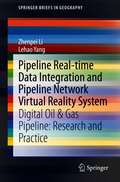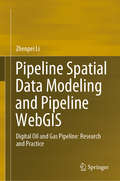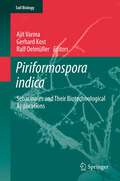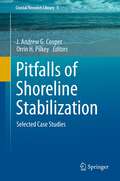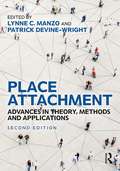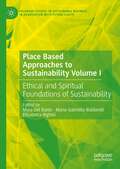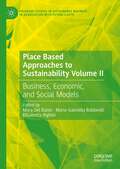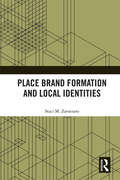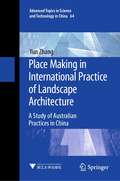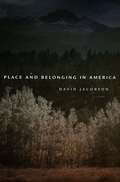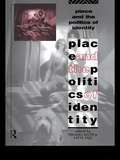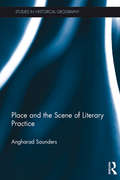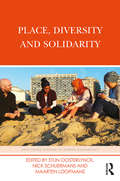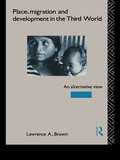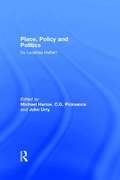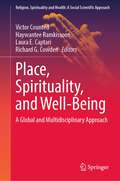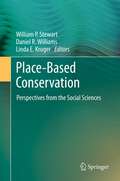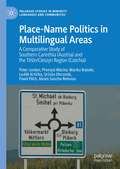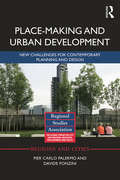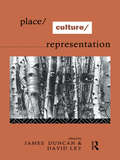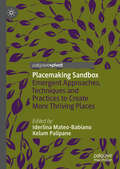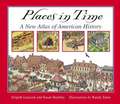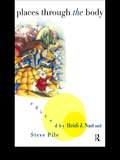- Table View
- List View
Pipeline Populism: Grassroots Environmentalism in the Twenty-First Century
by Kai BosworthHow contemporary environmental struggles and resistance to pipeline development became populist struggles Stunning Indigenous resistance to the Keystone XL and the Dakota Access pipelines has made global headlines in recent years. Less remarked on are the crucial populist movements that have also played a vital role in pipeline resistance. Kai Bosworth explores the influence of populism on environmentalist politics, which sought to bring together Indigenous water protectors and environmental activists along with farmers and ranchers in opposition to pipeline construction.Here Bosworth argues that populism is shaped by the &“affective infrastructures&” emerging from shifts in regional economies, democratic public-review processes, and scientific controversies. With this lens, he investigates how these movements wax and wane, moving toward or away from other forms of environmental and political ideologies in the Upper Midwest. This lens also lets Bosworth place populist social movements in the critical geographical contexts of racial inequality, nationalist sentiments, ongoing settler colonialism, and global empire—crucial topics when grappling with the tensions embedded in our era&’s immense environmental struggles.Pipeline Populism reveals the complex role populism has played in shifting interpretations of environmental movements, democratic ideals, scientific expertise, and international geopolitics. Its rich data about these grassroots resistance struggles include intimate portraits of the emotional spaces where opposition is first formed. Probing the very limits of populism, Pipeline Populism presents essential work for an era defined by a wave of people-powered movements around the world.
Pipeline Real-time Data Integration and Pipeline Network Virtual Reality System: Digital Oil & Gas Pipeline: Research and Practice (SpringerBriefs in Geography)
by Zhenpei Li Lehao YangAs the second volume of the "Digital Oil & Gas Pipeline: Research and Practice" series of monographs, this book introduces the implementation strategies, examples and technical roadmaps of two important aspects of the Digital Oil & Gas Pipeline construction: pipeline real-time data integration and pipeline network virtual reality system. Two example of pipeline real-time data integration are elaborated: integration of pipeline WebGIS (Geographic Information System) and pipeline SCADA (Supervisory Control and Data Acquisition) via OPC (OLE for Process Control) technology, integration of pipeline network virtual reality system and pipeline SCADA via OPC, JNI (Java Native Interface) and SAI (Scene Access Interface). The pipeline network virtual reality system aims for the pipeline virtual expression, interaction, and 3D visual management. It can be used for pipeline route visual design and plan, immersive pipeline industry training, remote visual supervision and control, etc. The implementation details of the pipeline network virtual reality system, including 3D pipeline and terrain modeling with X3D (Extensible 3D) technology, improving large-scene display performance and speed in the network environment using LOD (Level of Detail) technology, interaction of virtual pipeline scenes, and pipeline 3D visual monitoring, are also introduced. The knowledge and experience delivered by this book will provide useful reference for the readers from the industries of oil & gas pipeline, GIS, Virtual Reality, industrial control, etc.
Pipeline Spatial Data Modeling and Pipeline WebGIS: Digital Oil and Gas Pipeline: Research and Practice (Springerbriefs In Geography Ser.)
by Zhenpei LiThis monograph, which is the first book focusing on "Digital Oil & Gas Pipeline", introduces the author’s long-term research and practice on this topic. It introduces the latest research on the core technologies of the Digital Oil & Gas Pipeline, such as WebGIS, GIS Web Services, pipeline supervisory control and data acquisition (SCADA), OLE for Process Control, networked virtual reality, and Extensible 3D. The keys to the Digital Oil & Gas Pipeline, including pipeline spatial data model, pipeline WebGIS, integrity of pipeline SCADA and pipeline GIS, pipeline networked virtual reality system, are also elaborated. The knowledge and experience delivered by this monograph will provide a useful reference for readers from the industries in Oil & Gas Storage and Transportation, pipeline automation, GIS, Virtual Reality, and related fields.
Piriformospora indica
by Ajit Varma Gerhard Kost Ralf OelmüllerSebacinales have emerged as a fascinating order with mutualistic plant-fungal symbionts that consists of exclusively beneficial fungi. This volume of Soil Biology presents an overview of the current results in Sebacinales research with a focus on the potential of these fungi in crop improvement and stress tolerance. The authors demonstrate that Sebacinales are not only extremely versatile in their associations with roots, but are also almost universally present as symptomless endophytes. With this extraordinary diversity, Sebacinales with the key fungus Piriformospora indica might possess remarkable significance in natural ecosystems. Their biotechnological applications are expected to improve the quality of crops while maintaining ecologically and economically sustainable production systems.
Pitfalls of Shoreline Stabilization
by Orrin H. Pilkey J. Andrew CooperAt the coast all is not what it seems. Decades of beachfront development have seen a variety of efforts to stabilize the shoreline to protect ill-placed beachfront property, both from shoreline erosion and from storm damage. Both of these problems become increasingly critical in a time of rising sea level. Many natural beaches are backed by sea walls, while others have been transformed by whole series of groynes, offshore breakwaters and a plethora of other schemes. Many recreational beaches are actually artificial replicas of the real thing, emplaced to protect badly placed infrastructure and maintained only through ongoing costly beach nourishment. However, all of these attempts to stabilize the shoreline are far from benign. Degradation and even complete loss of the all important recreational beach sometimes results from seawall emplacement. Increasingly, the choice of shoreline stabilization approach will depend upon plans for future response to rising seas which in many cases may involve retreat from the shoreline rather than holding the line. This book explores, through a series of case studies from around the globe, the pitfalls of shoreline stabilization and provides a ready reference for those with an interest in shoreline management. It is particularly timely in a time of global change.
Place Attachment: Advances in Theory, Methods and Applications
by Patrick Devine-Wright Lynne C. ManzoFollowing on from the ground-breaking first edition, which received the 2014 EDRA Achievement Award, this fully updated text includes new chapters on current issues in the built environment, such as GIS and mapping, climate change, and qualitative approaches. Place attachments are powerful emotional bonds that form between people and their physical surroundings. They inform our sense of identity, create meaning in our lives, facilitate community, and influence action. Place attachments have bearing on such diverse issues as rootedness and belonging, placemaking and displacement, mobility and migration, intergroup conflict, civic engagement, social housing and urban redevelopment, natural resource management, and global climate change. In this multidisciplinary book, Manzo and Devine-Wright draw together the latest thinking by leading scholars from around the globe, including contributions from scholars such as Daniel Williams, Mindy Fullilove, Randy Hester, and David Seamon, to capture significant advancements in three main areas: theory, methods, and applications. Over the course of fifteen chapters, using a wide range of conceptual and applied methods, the authors critically review and challenge contemporary knowledge, identify significant advances, and point to areas for future research. This important volume offers the most current understandings about place attachment, a critical concept for the environmental social sciences and placemaking professions.
Place Based Approaches to Sustainability Volume I: Ethical and Spiritual Foundations of Sustainability (Palgrave Studies in Sustainable Business In Association with Future Earth)
by Maria-Gabriella Baldarelli Mara Del Baldo Elisabetta RighiniWithout respecting and nurturing ‘place’ we cannot achieve a state of ecological sustainability. Place-based organizations are not run on a purely materialistic basis. The non-materialistic features of a place, its aesthetics, cultural heritage, community feelings, transcendence, should be integrated into sustainability management. This far-reaching two-volume work breaks with the economic logic of efficiency and profit maximization, and suggests that organizations should inform their sustainability by encompassing feelings of identity with and attachment to place.According to this vision, the editors have compiled scholarly contributions aimed to support the ecological transformation of humankind by exploring both theoretical and practical models that integrate the sense of the place, ethics and spirituality in new ways of organizing of economic and social life. This first volume sets the theoretical direction of the volumes, asking broad aesthetic questions around the ethical and spiritual foundations of sustainability. It will be of interest to scholars, practitioners and students of sustainability, business ethics and spirituality.
Place Based Approaches to Sustainability Volume II: Business, Economic, and Social Models (Palgrave Studies in Sustainable Business In Association with Future Earth)
by Maria-Gabriella Baldarelli Mara Del Baldo Elisabetta RighiniWithout respecting and nurturing ‘place’ we cannot achieve a state of ecological sustainability. Place-based organizations are not run on a purely materialistic basis. The non-materialistic features of a place, its aesthetics, cultural heritage, community feelings, transcendence, should be integrated into sustainability management. This far-reaching two-volume work breaks with the economic logic of efficiency and profit maximization, and suggests that organizations should inform their sustainability by encompassing feelings of identity with and attachment to place.According to this vision, the editors have compiled scholarly contributions aimed to support the ecological transformation of humankind by exploring both theoretical and practical models that integrate the sense of the place, ethics and spirituality in new ways of organizing of economic and social life. This second volume takes the theoretical direction, established in the first model, and puts it into practice withcases from business and society. It will be of interest to scholars, practitioners and students of sustainability, business ethics and spirituality.
Place Brand Formation and Local Identities
by Staci M. ZavattaroThis innovative book explores micro-level neighborhood branding and the creation of distinct local identities in neighborhoods. It begins by situating place branding literature at the neighborhood level and then gives consideration to what the core components of a neighborhood brand might be. It does so by drawing on extensive interviews with key actors in the United States, such as government officials, Realtors, economic development professionals, urban planners, and neighborhood residents. Core topics such as belonging and community, identity, nostalgia, idealism, and recreation are explored. The book concludes with a proposed working definition of neighborhood brands and branding that stakeholders can use to promote and market their neighborhoods accordingly – or avoid branding them entirely. This book offers a novel contribution to place branding and destination management literatures by moving beyond the dominant macro-level narratives. It will be of interest to scholars and students studying in urban planning, tourism, destination branding, marketing, public administration and policy, and sociology.
Place Making in International Practice of Landscape Architecture: A Study of Australian Practices in China (Advanced Topics in Science and Technology in China #64)
by Yun ZhangThis book explores international practice in landscape architecture, focusing on the provision of services from Australia to China during China’s contemporary urbanization and Australian landscape architects’ approaches to place. Landscape architectural practice requires planners and designers to have a deep understanding of local culture, site characteristics, craftsmanship and even project procedures that are often intangible. How to acquire the above local knowledge has become a major challenge for international teams. Through the survey of the practice of Australian landscape practices in China and the case study of Li Lake planning and design project, this book reveals the process and difficulties of landscape planning and design as a transnational practice, as well as its special value as a way of cross-cultural fertilization. This book is intended for students, practitioners and researchers in the fields of landscape architecture, architecture and urban planning.
Place and Belonging in America
by David JacobsonHow did the American people come to develop a moral association with this land, such that their very experience of nationhood was rooted in, and their republican virtues depended upon, that land? And what is happening now as the exclusivity of that moral linkage between people and land becomes ever more attenuated? In Place and Belonging in America, David Jacobson addresses the evolving relationship between geography and citizenship in the United States since the nation's origins.Americans have commonly assumed that only a people rooted in a bounded territory could safeguard republican virtues. But, as Jacobson argues, in the contemporary world of transnational identities, multiple loyalties, and permeable borders, the notion of a singular territorial identity has lost its resonance. The United States has come to represent a diverse quilt of cultures with varying ties to the land. These developments have transformed the character of American politics to one in which the courts take a much larger role in mediating civic life. An expanding web of legal rights enables individuals and groups to pursue their own cultural and social ends, in contrast to the civic republican practice of an active citizenry legislating its collective life. In the first part of his sweeping study, Jacobson considers the origins of the uniquely American sense of place, exploring such components as the Puritans and their religious vision of the New World; the early Republic and agrarian virtue as extolled in the writings of Thomas Jefferson; the nationalization of place during the Civil War; and the creation of post-Civil War monuments and, later, the national park system. The second part of Place and Belonging in America concerns the contemporary United States and its more complex interactions between space and citizenship. Here Jacobson looks at the multicultural landscape as represented by the 1991 act of Congress that changed the name of the Custer Battlefield National Monument to Little Bighorn Battlefield National Monument and the subsequent construction of a memorial honoring the Indian participants in the battle; the Vietnam Veterans Memorial; and the U.S. Holocaust Memorial Museum. He also reflects upon changing patterns of immigration and settlement. At once far-reaching and detailed, Place and Belonging in America offers a though-provoking new perspective on the myriad, often spiritual connections between territoriality, national identity, and civic culture.
Place and the Politics of Identity
by Steve Pile Michael KeithIn the last two decades, new political subjects have been created through the actions of the new social movements; often by asserting the unfixed and `overdetermined' character of identity. Further, in attempting to avoid essentialism, people have frequently looked to their territorial roots to establish their constituency. A cultural politics of resistance, as exemplified by Black politics, feminism, and gay liberation, has developed struggles to turn sites of oppression and discrimintion into spaces of resistance. This book collects together perspectives which challenge received notions of geography; which are in danger of becoming anachronisms, without a language to articulate the new space of resistance, the new politics of identity.
Place and the Scene of Literary Practice (Studies in Historical Geography)
by Angharad SaundersThe act of writing is intimately bound up with the flow and eddy of a writer’s being-within-the-world; the everyday practices, encounters and networks of social life. Exploring the geographies of literary practice in the period 1840-1910, this book takes as its focus the work, or craft, of authorship, exploring novels not as objects awaiting interpretation, but as spatial processes of making meaning. As such, it is interested in literary creation not only as something that takes place - the situated nature of putting pen to paper - but simultaneously as a process that escapes such placing. Arguing that writing is a process of longue durée, the book explores the influence of family and friends in the creative process, it draws attention to the role that travel and movement play in writing and it explores the wider commitments of authorial life, not as indicators of intertextuality, but as part of the creative process. In taking this seventy year period as its focus, this book moves beyond the traditional periodisations that have characterised literary studies, such as the Victorian or Edwardian novel, the nineteenth-century or early twentieth-century novel or Romanticism, social realism and modernism. It argues that the literary environment was not one of watershed moments; there were continuities between writers separated by several decades or writing in different centuries. At the same time, it draws attention to a seventy year period in which the value of literary work and culture were being contested and transformed. Place and the Scene of Literary Practice will be key reading for those working in Human Geography, particularly Cultural and Historical Geography, Literary Studies and Literary History.
Place, Diversity and Solidarity (Routledge Studies in Human Geography)
by Stijn Oosterlynck Nick Schuermans Maarten LoopmansIn many countries, particularly in the Global North, established forms of solidarity within communities are said to be challenged by the increasing ethnic and cultural diversity of the population. Against the backdrop of renewed geopolitical tensions – which inflate and exploit ethno-cultural, rather than political-economic cleavages – concerns are raised that ethnic and cultural diversity challenge both the formal mechanisms of redistribution and informal acts of charity, reciprocity and support which underpin common notions of community. This book focuses on the innovative forms of solidarity that develop around the joint appropriation and the envisaged common future of specific places. Drawing on examples from schools, streets, community centres, workplaces, churches, housing projects and sporting projects, it provides an alternative research agenda from the 'loss of community' narrative. It reflects on the different spatiotemporal frames in which solidarities are nurtured, the connections forged between solidarity and citizenship, and the role of interventions by professionals to nurture solidarity in diversity. This timely and original work will be essential reading for those working in human geography, sociology, ethnic studies, social work, urban studies, political studies and cultural studies.
Place, Migration and Development in the Third World: An Alternative Perspective
by Lawrence A. BrownProviding a fresh examination of the nature of Third World development, the author focuses on the characteristics of particular places and regions and their influences on behaviour. This is an important study of the relationship between population movements and regional and national changes.
Place, Policy and Politics: Do Localities Matter?
by John Urry Michael Harloe C. G. PickvanceThe past ten years have seen local government in the UK facing two major challenges: to survive in the face of Thatcher government hostility, and to adapt to enormously powerful forces of economic restructuring which have also been encouraged by government policies. The key aspects of these changing fortunes of British towns explored in this important new book is the ability of individual localities to exercise any control over their own growth and decline. Place, Policy and Politics examines local political initiatives seeking to influence economic and social development in seven sharply contrasting localities, ranging from the outer council estates of Merseyside to the boom towns of Cheltenham and Swindon. Throughout their analysis, the contributors, drawn from a wide range of social science disciplines, address the vital questions in the debate over local policy initiatives, including: * To what extent are localities able to harness trends in the national and international economy to provide jobs and a better standard of living for their inhabitants? * Why do local authorities vary in their capacity to initiate economic policy? * To what extent do national urban and other policies inhibit or encourage their efforts? * How might central government modify its policies to facilitate the prospering of localities?
Place, Spirituality, and Well-Being: A Global and Multidisciplinary Approach (Religion, Spirituality and Health: A Social Scientific Approach #7)
by Haywantee Ramkissoon Victor Counted Richard G. Cowden Laura E. CaptariThis book synthesizes perspectives on how ‘place’ is deeply intertwined with our spirituality and well-being. Split into three sections, this book brings together contributions from global scholars across a range of disciplines to unravel how the personal, social, and cultural spheres of place shape our spiritual experiences and overall well-being. It is an essential read for those interested in enriching their knowledge of the linkages between place, spirituality, and well-being, while also providing a foundation for future research on place and its intersections with both spirituality and well-being.
Place-Based Conservation
by Linda E. Kruger Suzette Dailey William P. StewartThe concept of "Place" has become prominent in natural resource management, as professionals increasingly recognize the importance of scale, place-specific meanings, local knowledge, and social-ecological dynamics. Place-Based Conservation: Perspectives from the Social Sciences offers a thorough examination of the topic, dividing its exploration into four broad areas. Place-Based Conservation provides a comprehensive resource for researchers and practitioners to help build the conceptual grounding necessary to understand and to effectively practice place-based conservation.
Place-Name Politics in Multilingual Areas: A Comparative Study of Southern Carinthia (Austria) and the Těšín/Cieszyn Region (Czechia) (Palgrave Studies in Minority Languages and Communities)
by Peter Jordan Přemysl Mácha Marika Balode Luděk Krtička Uršula Obrusník Pavel Pilch Alexis Sancho ReinosoThis book explores the role of place names in the formation and maintenance of individual and group identities in multilingual and multi-ethnic situations. Using examples from Austria and Czechia as case studies, the authors examine the power of place names through an interdisciplinary and multi-methods approach that draws from the fields of anthropology, geography, sociolinguistics and toponomastics. The book contextualises both places within their social and political histories, and probes recent debates in the social sciences relating to place names, identity and power. It will be of interest to scholars and students focusing on place names and naming practices, minority communities and languages, and linguistic landscapes.
Place-making and Urban Development: New challenges for contemporary planning and design (Regions and Cities)
by Pier Carlo Palermo Davide PonziniThe regeneration of critical urban areas through the redesign of public space with the intense involvement of local communities seems to be the central focus of place-making according to some widespread practices in academic and professional circles. Recently, new expertise maintains that place-making could be an innovative and potentially autonomous field, competing with more traditional disciplines like urban planning, urban design, architecture and others. This book affirms that the question of 'making better places for people' should be understood in a broader sense, as a symptom of the non-contingent limitations of the urban and spatial disciplines. It maintains that research should not be oriented only towards new technical or merely formal solutions but rather towards the profound rethinking of disciplinary paradigms. In the fields of urban planning, urban design and policy-making, the challenge of place-making provides scholars and practitioners a great opportunity for a much-needed critical review. Only the substantial reappraisal of long-standing (technical, cultural, institutional and social) premises and perspectives can truly improve place-making practices. The pressing need for place-making implies trespassing undue disciplinary boundaries and experimenting a place-based approach that can innovate and integrate planning regulations, strategic spatial visioning and urban development projects. Moreover, the place-making challenge compels urban experts and policy-makers to critically reflect upon the physical and social contexts of their interventions. In this sense, facing place-making today is a way to renew the civic and social role of urban planning and urban design.
Place/Culture/Representation
by David Ley James DuncanSpatial and cultural analysis have recently found much common ground, focusing in particular on the nature of the city. Place/Culture/Representation brings together new and established voices involved in the reshaping of cultural geography. The authors argue that as we write our geographies we are not just representing some reality, we are creating meaning. Writing becomes as much about the author as it is about purported geographical reality. The issue becomes not scientific truth as the end but the interpretation of cultural constructions as the means. Discussing authorial power, discourses of the other, texts and textuality, landscape metaphor, the sites of power-knowledge relations and notions of community and the sense of place, the authors explore the ways in which a more fluid and sensitive geographer's art can help us make sense of ourselves and the landscapes and places we inhabit and think about.
Placemaking Sandbox: Emergent Approaches, Techniques and Practices to Create More Thriving Places
by Iderlina Mateo-Babiano Kelum PalipanePlacemaking Sandbox offers a valuable collection of placemaking case studies, designed for teachers and students to build expertise in shaping and creating thriving public places. Each chapter outlines the latest research and practice underpinning placemaking pedagogical approaches, with specialist authors developing and interrogating methodological techniques and reflecting on current teaching and research. By taking a hands-on and experimental look at emergent practices, pedagogies and methods in placemaking across different contexts, this book will help deepen understandings on how to wrestle with complex conditions generated by place. In Placemaking Sandbox contributors skillfully tackle a little researched topic on the pedagogy of place and placemaking, and in the process offer a distinctive bridge between academia and practice.
Places In Time: A New Atlas Of American History
by Elspeth Leacock Susan Washburn Buckley Randy JonesA tiny whaling village along the Pacific in 1490, New Plymouth as the Pilgrims settled in, Fort Mose as it welcomed African Americans escaping from slavery, Gettysburg on the day that decided the Civil War . . . <P><P>Places in Time offers a bird’s-eye view of twenty sites where American history was made. Each page opens an unforgettable window to the past, where you can find out just what it was like to live in one place on one day in our nation’s history.
Places Through the Body
by Heidi J. Nast Steve PileThis exciting collection opens up many new conversations on BodyPlace and introduces new theories of embodied places and the placing of bodies. Extensive introductory and concluding sections guide students through the key debates and themes. Places Through the Body draws on a wide range of contemporary examples and creative ideas to address such topics as: * How racist ideologies are embedded in modern architechtural discourse and practice * How urban spaces make bodies disabled * How the seemingly virtual worlds of knowledge and technology are embodied * How gyms enable women body builders to make new kinds of bodies * How male bodies are placed onto the silver screen * New kinds of femininity Here geographers, architects, anthropologists, artists, film theorists, theorists of cultural studies and psycho-analysis work alongside each other to make clear connections between bodies and places.
Places in My Community (Into Reading, Read Aloud #Module 3, Book 1)
by Bobbie KalmanNIMAC-sourced textbook

